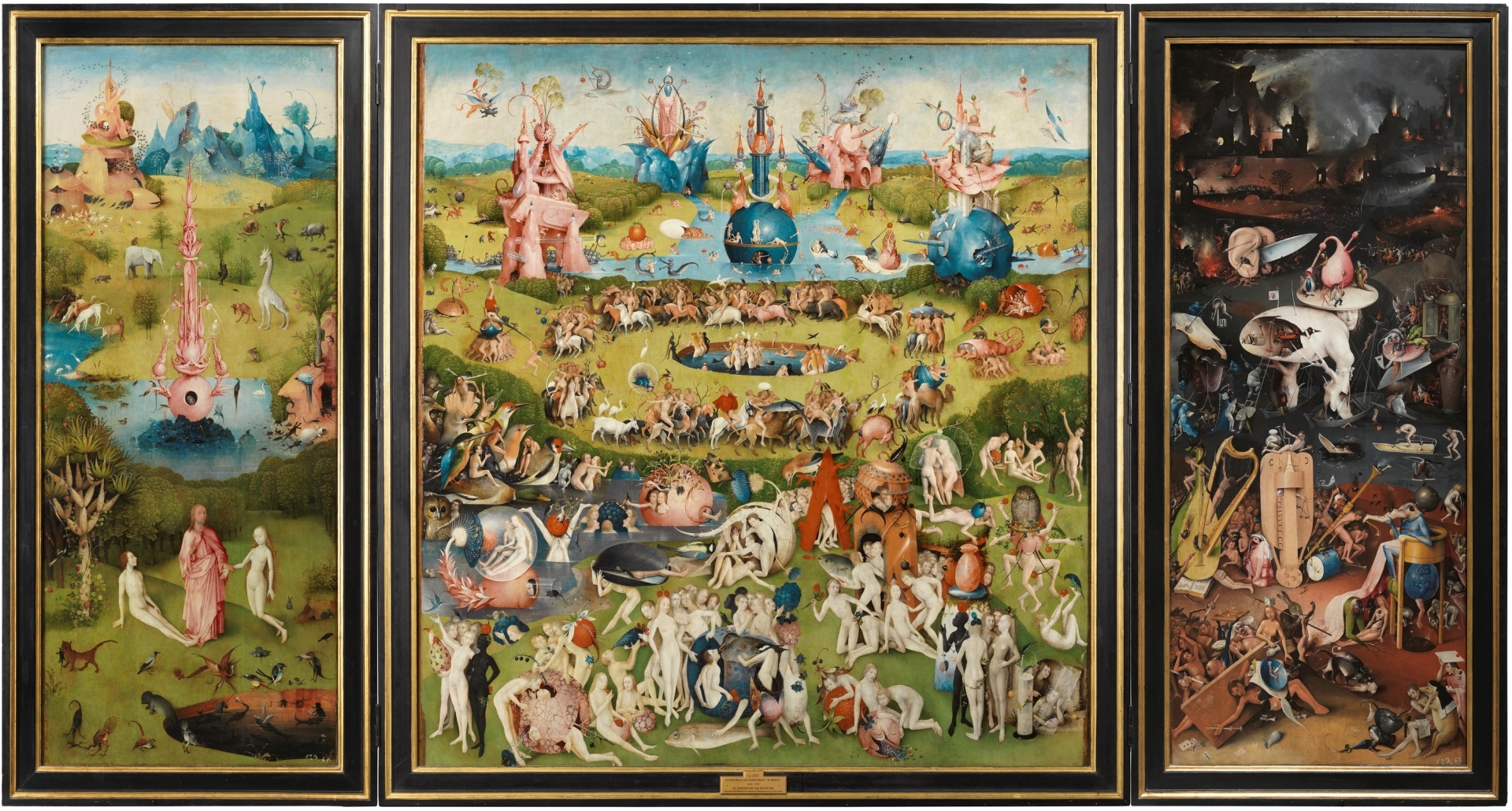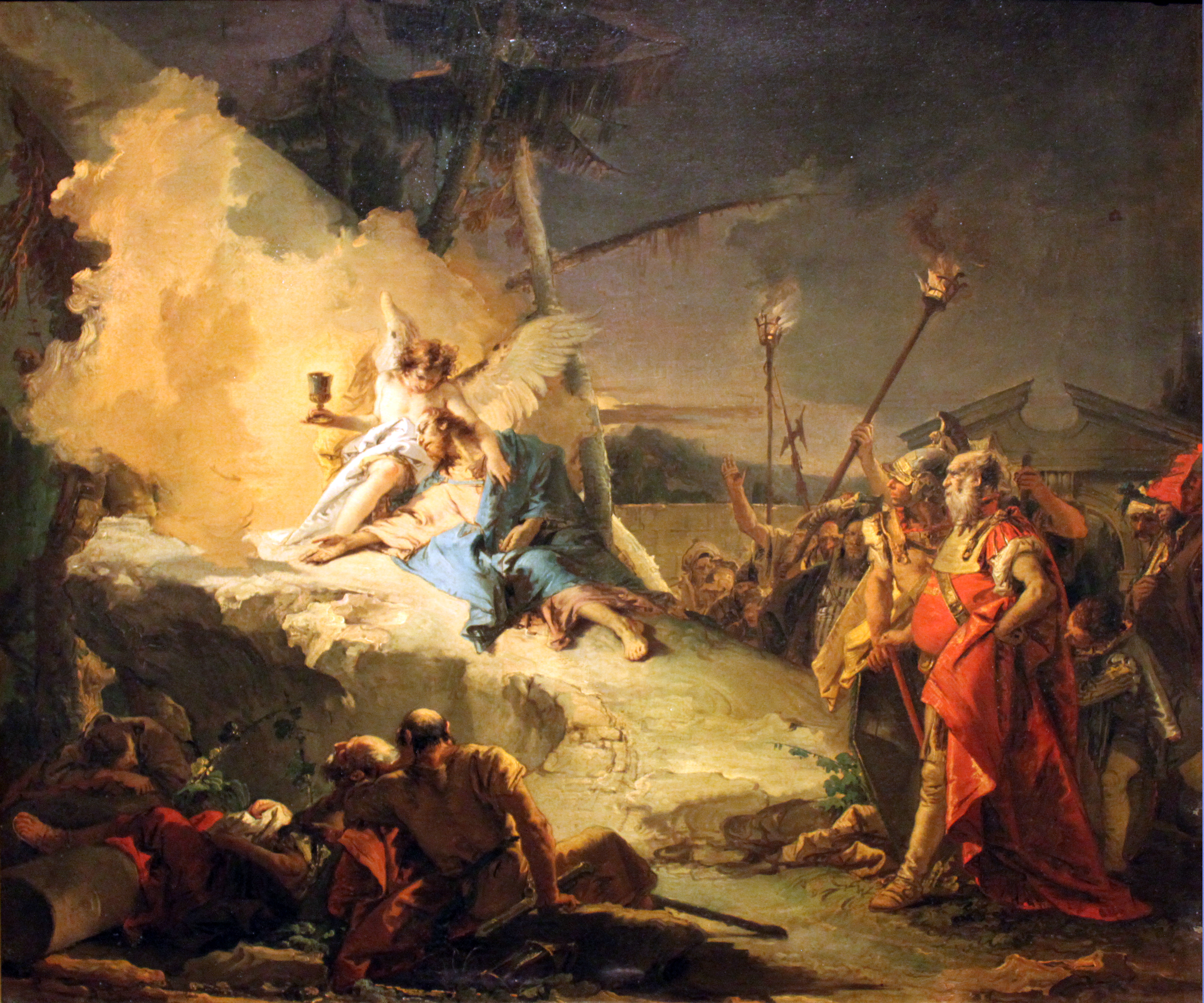Lent: A Pathway Between Two Gardens
From a priest of the Institute of the Incarnate Word
We are now in the first week of Lent. In order to aid our passage through this important liturgical season, we offer weekly meditations. Each is written by a priest from the Institute of the Incarnate Word, IVE, and we are delighted that they have taken the time to do so. The first focuses on some general thoughts for Lent and is by Fr Brian Dinkel, Pastor of Our Lady of Peace in Santa Clara, CA. He writes:
With due reason, the archetypal setting for the Lenten season is the desert. The arid desolate land that purges us from the attachment to the comfortable life of sin, which goes no further than self-satisfaction. What about Gardens? As much as our senses and inclination to comfort may need some desert time for detachment, so too might our intellect and will need some time spent in the Gardens for conversion. Let us explain.

The Old Testament line that inaugurates Lent for most is: “Remember you are dust and unto dust, you shall return.” (Genesis 3:19) These words are spoken in a Garden, Eden. In this Garden, through an act of disobedience, Adam and Eve turned from God. This is followed by what Bl.John Henry Newman wittingly describes as “The original excuse.” (Cf., Bl. John Henry Newman, Oxford University Sermons, Sermon 8) First Adam points to Eve saying, “The woman whom you put here with me—she gave me fruit from the tree,” and then Eve places the onus on the serpent, saying, “the snake tricked me, so I ate it.” (Genesis 3,12-13) In another other Garden, Gethsemane, we witness a supreme act of obedience to the Father.
Jesus speaks to His Father with child-like simplicity: “Father, if Thou art willing, remove this cup from Me: nevertheless, not My will, but Thine, be done.” (Mt 26,42) In this Garden, however, He makes Himself the excuse for everyone else. The Garden of Eden is where life is springing forth on all sides, but selfishness leads to death. In Gethsemane, death is all-encompassing, but in this garden, selflessness leads to life.
His soul was sad to the point of death. He felt within His soul a sadness that was deep enough to cause the feeling of death. The Greek adjective περίλυπος (perilypos: from peri‐ around + lypé sorrow, grief) means properly, around‐sorrowful, that is, sorrowful all around, encompassed with sorrow; i.e. exceedingly sorrowful. (Cf., Mt 26,38) Therefore, the Jesus Christ, as St. Paul describes it, became sin, “for our sake he made him to be sin who did not know sin.” (2 Cor 5,21) The moral sufferings of Jesus were without comparison; they were tremendous; they were of greater suffering than the very nails that pierced His hands and His feet. It was so intense that He sweat blood. After all of this agony, He calls us into communion with Him this day. He gives us the blessing to be with Him, to receive Him, to be in communion with Him.

We have to look at, take ownership of, and reject what we have done. We must also acknowledge and cherish what He did, for me, in order for my heart to begin to change. One needs to see the darkness and evil of sin, that it is mine alone, and that Jesus – the Innocent Lamb – has taken it upon Himself to free me from them. As Pope St. John Paul taught, “Sin is an integral part of the truth about the human person. To recognize oneself as a sinner is the first and essential step in returning to the healing love of God.”
I need to see this, I need to look at this, in order for there to be real, lasting change; otherwise, I never see myself honestly, nor do I give the great price that Jesus paid for me an honest consideration. Our faith, religion, is more than pursuing happiness or self-realization – it is friendship and love. He took on a terrible amount of filth for me and He continues to call me like a loving friend who says: “forget about it – I don’t condemn you, I absolve you and forgive you, but go and sin no more.”
Our hearts must change. Ash will probably not do it, but maybe God—so meek and humble who came down from heaven, clothed Himself in our sins and poured forth blood from every pore of His body—will.
Here, in this Garden, Jesus places the sins of all human beings upon His shoulders. Thinking of the circumstances, the number, the malice, the ugliness, my own sins, . . . sins of a culture, of a society, of governments, our uncontrollable pride that in the name of liberty we unhinge ourselves from subjection and when faced with our ruin we place the blame on God who did not intervene or we reject Him altogether. He who knew no sin, placed upon himself all of this.
He can take away from these awful things something good – His Passion is our Redemption. He wanted to give us the sacraments. Therefore, no matter how bad our sins may be, or have been, God’s love is Greater – out of love for us He clothed Himself in this suffering. 2. Love – the love of God for each and every one of the members of His Mystical Body. Jesus saw all of His disciples, those who would follow Him, He also saw all of our infidelities. How we place our affections on material things, the insults that we make towards one another, the divisions, the hatred, the calumny, . . . He saw the lukewarmness and indifference of His friends.
He saw all of this, the martyrs of all times, the sufferings of the members of His body. He suffered these as if it were His own body. These were His members. The innocent ones who were forgotten or abused, thrown away by a society. For this reason, we know that Jesus suffered when we suffer. And this produces a profound suffering in His person. The Father in His infinite Love sent an angel to console Him, as His friends could not stay awake and watch one hour with Him.

Paintings are by Bosch, Goya, and Tiepolo respectively.



